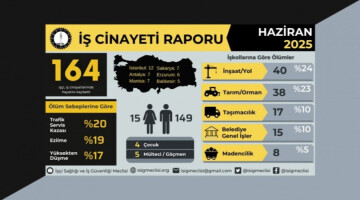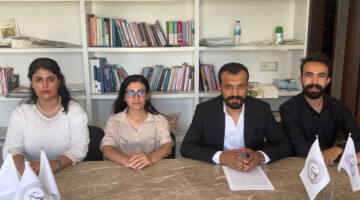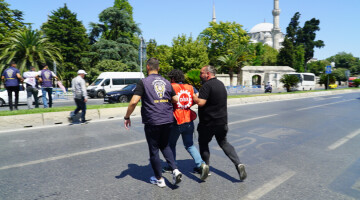The conviction of ten members of the Kurdish party HADEP, banned in Turkey in 2003, for staging a sit-in protest against the "disappearance" of two fellow party members violated their right to freedom of assembly. That's what a three-judge panel at the European Court of Human Rights (ECtHR) ruled this week (No. 26638/07). Turkey must now pay the complainants a total of 15,000 euros in compensation.
The case
On January 25, 2001, HADEP politicians Serdar Tanış and Ebubekir Deniz were summoned by telephone to the headquarters of the Turkish gendarmerie (military police) in Silopi district of Şırnak, northern Kurdistan. After that, the two men were never seen again. Both Serdar Tanış, who had received an order from his party's headquarters six months earlier to establish the HADEP district association in Silopi, and Ebubekir Deniz received death threats from the gendarmerie’s informal intelligence service (JITEM) before their "disappearance" so that they would cease their political activities.
15-minute assembly ends with 15 months' imprisonment
To protest the arrest of the two politicians and demand their release, people gathered in front of the HADEP branch in Siirt province on February 4, 2001, to issue a press statement as part of a sit-in. The sit-in ended peacefully after a quarter of an hour, but the police nevertheless used force against the participants and arrested a total of 41 people, against whom investigations were launched for violating the Law on Assembly No. 2911. At the following trial, all defendants were sentenced to 15 months’ imprisonment each and a fine in the low three-digit range. Among those affected were HADEP Siirt branch Chairman Ahmet Konuk, District Chairman Abdurrahman Taşçı, and board members Süleyman Yaş, Muhyettin Timurlenk, Abdullah Gök, Emin Batur, Ahmet Destan, Mehmet Emin Köneş, Bedrettin Polat, and Aysel Adar, who filed an appeal with the ECtHR after exhausting national remedies.
ECtHR: Disproportionate prosecution
Fourteen years after the complaint was filed, the ECtHR now ruled that the convictions were incompatible with Article 11 of the European Convention on Human Rights (ECHR), which advocates the right to freedom of assembly and association - "even if the demonstration took place without prior authorization."
The press statement was peaceful, did not contain hate speech or call for violence. Therefore, there was a lack of social interest for the prosecution. The punishments against those involved were thus disproportionate and unnecessary in a democratic society, the ECtHR said. In its ruling, the European Court of Human Rights also recalled its decision of December 14, 2010, according to which the ban on HADEP violated the freedom of association also granted in Article 11 of the ECHR. The ECtHR had also condemned Turkey in the case of the "disappeared" Serdar Tanış and Ebubekir Deniz. Those responsible were not punished by the Turkish judiciary, however.
Yalçındağ: "Justice delayed is justice denied"
Lawyer Reyhan Yalçındağ, who had appealed to the ECtHR in the Siirt cases, was not particularly pleased with the Strasbourg ruling. "As Adorno used to say; justice delayed is justice denied. This applies to a number of cases that have been pending in Strasbourg for many years. In my opinion, the ECtHR is partly responsible for the drastic situation of Kurdish politics in Turkey," said the lawyer from Amed (Diyarbakır). A look at the 20 years in which Serdar Tanış and Ebubekir Deniz have been considered missing is enough to form one's own picture of the situation, she said and continued: "There has not been a single positive change during this period. The pressure against Kurdish politics is taking on ever more repressive forms, elected mayors, members of parliament and party members are ending up behind bars for long years on trumped-up charges, are being mistreated in the middle of the street by so-called security forces, and appointed trustees are ruling the HDP's city halls as forced administrators. Kurdish politicians are convicted for exercising their fundamental rights because the Turkish judiciary completely ignores the European Human Rights Convention. The ECtHR must do more than administer token justice 14 years later."
HADEP
The "People's Democracy Party" (Kurdish: Partiya Demokrasiya Gel, Turkish: Halkın Demokrasi Partisi) was founded in 1994 and banned in March 2003. The Turkish Constitutional Court cited "separatist aspirations" as the reason for the ban. The court imposed a five-year ban on political activity on several dozen leading functionaries. This also affected chairman Murat Bozlak. After the ban, the party's assets were confiscated. On September 1, 2003, an appeal was filed with the ECtHR.















